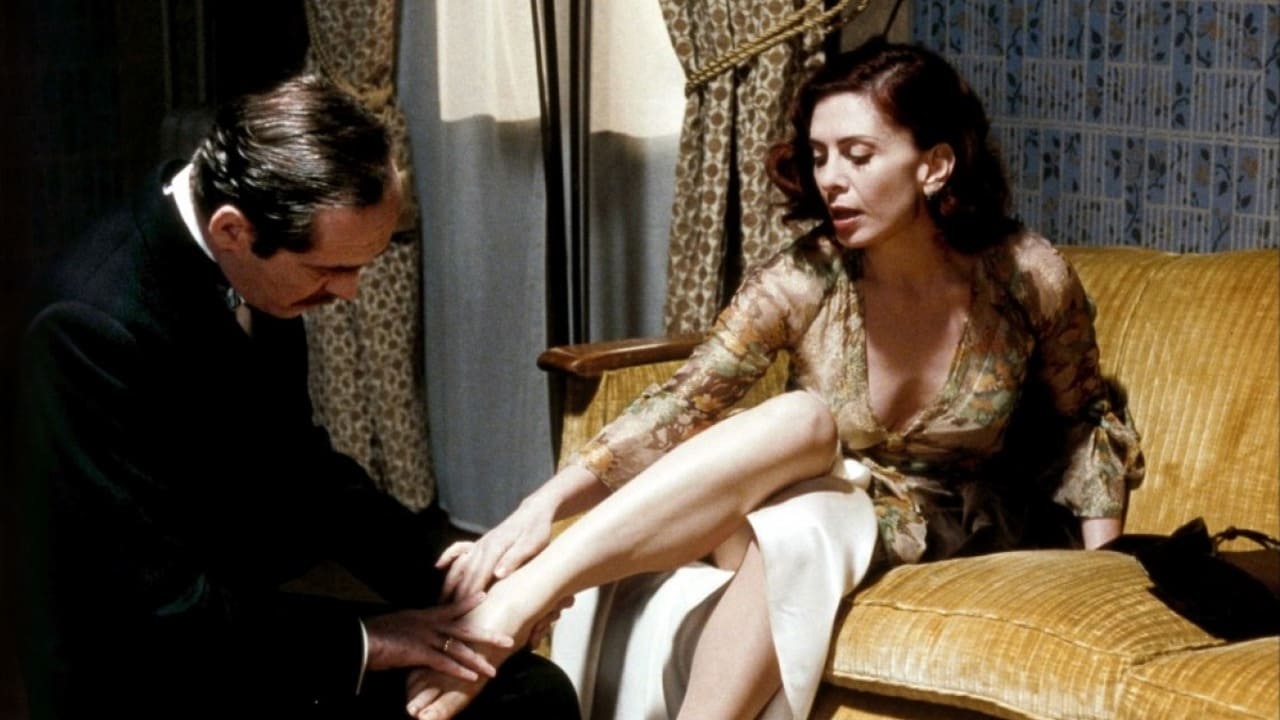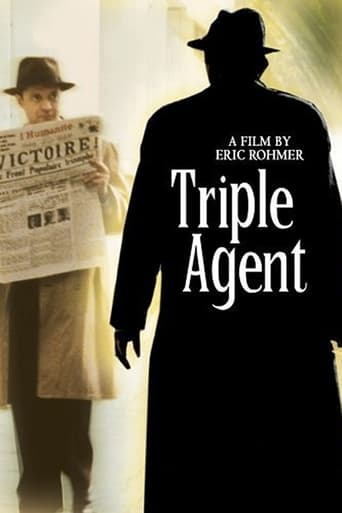

I wouldn't have believed it possible for a boring film to be made out of the Miller/Skoblin/Plevitskaya story - which has sinister Nazi and Soviet spies, impoverished old Russian emigres plotting away in cheap Parisian cafes, a larger than-life popular singer, kidnappings, tortures, murders and betrayals galore - but Rohmer has managed to do exactly that.In fact other than giving him the excuse to write great turgid gobbets of expository dialogue about the Popular Front, Stalin, Trotsky etc (which must have gained him major brownie points amongst those elderly Paris intellectuals who managed to stay awake through the premiere) it is very difficult to know why Rohmer made this film at all - unless its all a pretentiously backhanded tribute to Vladimir Nabokov whose 1943 short story the Assistant Producer covered the same territory and is written from the point of view of a Hollywood film producer.As other reviewers have pointed out even by Rohmer's standards this film is anti-cinematic - with by far the most striking visual images being the newsreel clips inserted at various points and which alone break up the verbose tedium.Worse it completely inverts the true story on which it is supposedly based by making the 'triple agents' wife an innocent.While the details will remain obscure until the relevant files in the Soviet archives become available (assuming they still exist), historians seem unanimous that the General's wife Nadia Plevitskaya - in reality a popular Russian folk singer and not a Greek painter - was every bit as active a Soviet agent as her husband.Certainly she had happily served the Reds during the revolution and was singing for one of their army units when she was captured/'liberated' by her future husband - and if she was not a Soviet spy from the very beginning was presumably a cynical opportunist who stayed loyal to the Whites only until their money and hope of ever leading a counter-revolution evaporated and then returned to her previous allegiance taking her husband with her.Even Nabokov who had met the woman and in 1943 evidently did not believe her to be a Soviet spy, unmercifully mocks her vulgarity and stupidity in his short story.Anyone further from Rohmer's gentle Greek naif would be difficult to imagine.Rohmer's Voronin seems rather closer to the real Skoblin - and particularly to Nabokov's version - but even his character never really becomes that interesting as whatever evil he is doing (and can you conceive of anything more evil than having your close friends and colleagues successively kidnapped and tortured to death by their worst enemies)is always kept offscreen and unreal.All in all a complete waste of two hours and whatever you paid to buy/rent the film.
... View MoreRoehmer is so uninterested in visual artistry -- or even the nuts and bolts of composition, framing, lighting or colour -- and his characters are so obsessively, almost oppressively verbose, that it's a mystery why Triple Agent is a film at all. At most it may as well be a stage play, so little does it use the possibilities of cinema. Better perhaps as a radio play, or even a straightforward piece of prose on the page. Seldom has a cinematic adaptation managed to add so little to a story.Among the actors, Katerina Didaskalu shines out for her naturalism as much as her beauty. Serge Renko has fine control of his physical mannerisms, but like all the actors, there is so little variation in the pace with which he delivers dialogue that the effect is almost robotic. The other actors form perhaps the most densely wooden ensemble of stiffness I've ever seen on the screen. Talented directors are often able to coax beautifully natural performances from non-professional actors, but here Roehmer exhibits what can only be described as an anti-Midas touch, turning his presumably professional cast(?) into almost comically inept living cardboard, grinding through their lines as if reading them straight off the idiot board. The reason, of course, is the excruciatingly stilted script: it is simply impossible to make it sound as if these are words that would come out of people's mouths. Since Roehmer is responsible for script as well as direction, this fault too must be laid at his door. Triple Agent is a sad but instructive example of the stultifying collapse of self-critical powers in someone who has been admired for so long he can no longer remember how to improve on his first impulses.The film critic Mark Cousins says a lot of things I don't agree with, but he was right on the button when he noted that, unlike novelists, painters, composers, or conductors, even the greatest film directors almost never produce their best work as they get older. Can you think of a great film by a director in his/her 80s? I can't (Kurosawa's Madadayo, in my experience, is the only one that even comes near). It's an axiom that Triple Agent certainly doesn't come anywhere close to violating.
... View MoreEric Rohmer makes a spy film though as one critic puts it, that doesn't make him likely to be a front runner to direct the next James Bond movie. Set on 1936, under the shadow of the Popular Front victory in France's elections, and based on the real life case of Russian spy Nikolai Skoblin, the movie is mostly about people in closed rooms chatting about politics. But most of the talk seems intelligent and engaging (by the way, the movie follows the real case closely, if you believe the Wikipedia article about Skoblin). The actors are fine, as usual in Rohmer films Renko is slippery as the titular spy, and Langlet seems lovely as its naive communist neighbor. Now the Popular Front victory of the time probably means next to nothing to most people today but it was probably a life moving experience for Rohmer who was 16 at that time. In a way, this film is about Rohmer again settling scores against the French left, though thankfully, his conservative politics aren't as overbearing as in "The Lady and the Duke".
... View MoreI was very disappointed by a slow and unimaginative camera and cutting, artificial and complicated dialogs, an aching scenario and some contradictions in the settings, e.g. the flat where the couple lives, being placed in a popular, poor context has an elevator... the more bourgeois house where the white Russians have their offices being without. Another element: the central couple is meant to be poor but drives a big family car. When the white Russians confront the main character in the office, they mention a taxi downstairs. He gets away and the pursuing white Russians come down to the street where no taxi waits. Later in the movie it is revealed that the main character hid in another apartment of the building - only in that case there should have been a taxi in front of the house. No, with all due respect, but this is lousy. I watched the DVD version with bonus elements, especially an extensive interview of an historian and one member of one family involved in the historical events. I'd like to mention the shaky sound quality and unnerving noises of a badly fixed microphone. I wondered whether anybody checked the sound before putting it on the DVD... Stay away from it - you'd be annoyed!
... View More